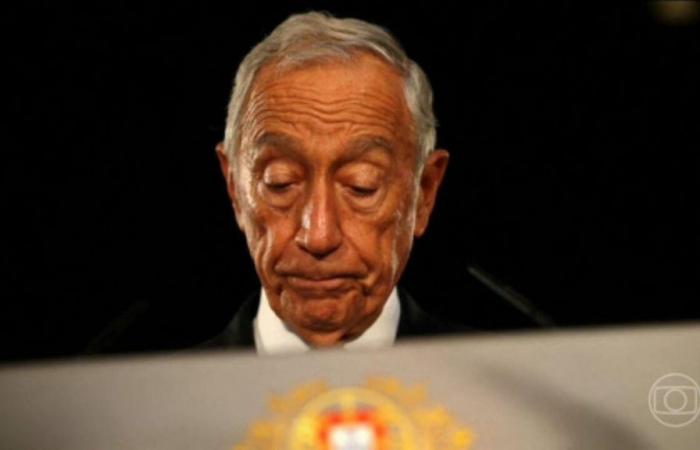
President of Portugal says country must pay price for slavery and colonial crimes
This was the first time that a president of Portugal — who is the head of state in the country — acknowledges guilt. Last year, Rebelo de Sousa said Portugal should apologize for transatlantic slavery and colonialism, but Didn’t even apologize in full.
The president of Portugal does not have the same responsibilities as the president of Brazil, for example. There, executive and decision-making functions rest with the prime minister, elected by Parliament.
Portugal was the country that trafficked the most Africans in the colonial era. There were almost 6 million of them, almost half of the total number of people enslaved at the time by European countries. The main destinations were Brazil and the Caribbean.
In this report, you will see:
- What did Marcelo Rebelo say?
- What is the practical effect of your speech?
- What was the impact on Portugal It’s in Brazil
- Impact of enslavement
- Has any country already promoted similar reparation initiatives?
What did the Portuguese president say?
Marcelo Rebelo de Sousa spoke about Portugal’s historic debt due to slavery in a conversation with foreign correspondents on Tuesday night (23). He also said that suggested to his government to make reparations for slavery and that your country “assumes full responsibility for the damage caused”, as massacres of indigenous people, the slavery of millions of Africans and looted goods.
“We have to pay the costs (for slavery). Are there actions that were not punished and those responsible were not arrested? Are there goods that were looted and were not returned? Let’s see how we can repair this”, declared the Portuguese president.
In the conversation, however, Marcelo Rebelo did not specify how the repair will be carried out.
He further stated that acknowledging the past and taking responsibility for it was more important than apologizing. “Apologizing is the easy part,” he said.
Does speech have a practical effect?
Not for now. In Portugal, the president is the head of state, who is the highest public representative in the country and has more symbolic than practical power. Prime Minister Luis Montenegro is the country’s head of government, who represents the main figure in the country’s politics and governs in fact. He was sworn in in March.
The Portuguese newspaper “Expresso” reported having heard from members of the government, who, according to the publication, classified the issue as “toxic” and “untimely”.
In any case, Marcelo Rebelo’s speech is important because it marks the first time that a president of Portugal recognizes his guilt for slavery and colonization.
President Marcelo Rebelo’s speech generated reactions both in Portugal as in Brazil.
“What the President of the Republic said to the country today is the greatest betrayal of the country and the Portuguese people in memory. We will not forget”, said the Chega party in a publication on X (formerly Twitter).
Impact of enslavement
For more than four centuries, at least 12.5 million Africans were kidnapped, forcibly transported long distances, mainly by European ships and traders, and sold into slavery. Those who survived the journey were sent to work without pay on plantations in Brazil and the Caribbean.
Portugal was the country that trafficked the most Africans in the colonial era. They were almost 6 million of themalmost half of the total number of people enslaved at the time by European countries.
To this day, however, the country’s authorities talk little about crime, and schools also barely address Portugal’s role in transatlantic slavery.
Instead, Portugal’s colonial era — during which countries such as Angola, Mozambique, Brazil, Cape Verde and East Timor, as well as parts of India, were subjected to Portuguese rule — is often seen as a source of pride.
The idea of paying reparations or taking other action for transatlantic slavery has been gaining traction around the world, including efforts to establish a special tribunal on the issue.
Has any country already promoted similar reparation initiatives?
Some countries around the world have already taken historical reparation actions resulting from colonization or enslavement, but there are still few.
In the Netherlands, Prime Minister Mark Rutte apologized in 2022 for the country’s involvement in the slave trade and announced the creation of a fund of 200 million euros (around R$1.1 trillion) for initiatives, especially in the field of education, to combat the legacy of slavery in former colonies.
In Canada, the government created a reconciliation commission with local indigenous peoples and announced in 2023 a compensation package of US$17.35 billion (R$89.3 billion).
The United Nations (UN) launched a report in 2023 asking countries to consider adopting financial reparations for the period of slavery.
The report highlighted that the difficulty in enabling a legal claim for financial compensation “cannot be the basis for nullifying the existence of legal obligations owed”.
Tags: President Portugal talks reparations Brazil slavery understand means practice World
--




